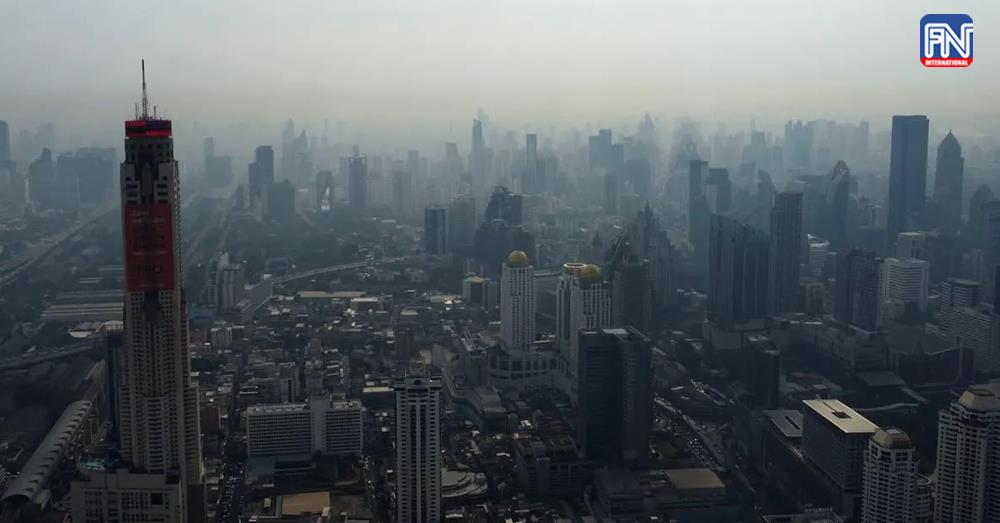BANGKOK, Jan 26 (AFP) - People in Bangkok have been advised to work from home and wear face masks due to air pollution that has worsened to unhealthy levels.
Officials urged people to use public transport rather than private cars for commuting, and said the authorities would seek to reduce sources of pollution such as outdoor burning and construction activities. Face masks would be distributed to vulnerable people, Bangkok authorities said.
The Bangkok governor, Chadchart Sittipunt, said pollution was expected to rise on Thursday but it did not require schools to be closed. “I would like to ask people to be prepared by checking the pollution level before planning a trip. The BMA [Bangkok Metropolitan Administration] and pollution department will control the sources of the dust and ask for cooperation from activities that generates dust such as construction sites or truck transportation,” he said.
If the situation worsened, he added, limitations on transport would be considered.
Agricultural burning and forest fires are a major cause of air pollution in Thailand between December and April, especially in the north-west. Pollution from these fires also affects Bangkok, which already struggles with bad air due to its factories, construction and traffic.
On Thursday morning, PM2.5 levels reached 63.2µg/m³ (micrograms per cubic metre), according to the Swiss air quality company IQAir – far higher than the WHO annual air quality guideline of 5µg/m³. Areas of Samut Songkhram, south-west of Bangkok, and Lampang, in the north, ranked worst in Thailand.
Dr Opas Karnkawinpong, the permanent secretary in the health ministry, said this week that all provincial public health services would monitor the situation and that emergency centres would be opened in provinces experiencing high levels of pollution for more than three consecutive days.
The number of patients experiencing pollution-related health problems more than doubled to nearly 213,000 this week, from about 96,000 last week, Opas said. Most were experiencing respiratory tract problems as well as symptoms such as dermatitis or eye inflammation.
Chadchart said the situation would be monitored closely throughout February and was expected to be better in March.
